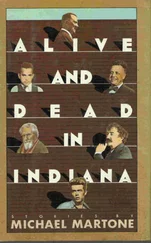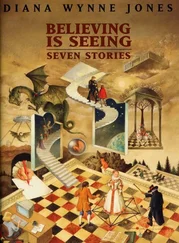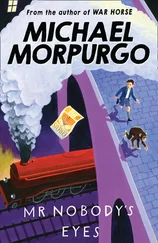Michael Martone - Seeing Eye
Здесь есть возможность читать онлайн «Michael Martone - Seeing Eye» весь текст электронной книги совершенно бесплатно (целиком полную версию без сокращений). В некоторых случаях можно слушать аудио, скачать через торрент в формате fb2 и присутствует краткое содержание. Год выпуска: 2013, Издательство: Dzanc Books, Жанр: Современная проза, на английском языке. Описание произведения, (предисловие) а так же отзывы посетителей доступны на портале библиотеки ЛибКат.
- Название:Seeing Eye
- Автор:
- Издательство:Dzanc Books
- Жанр:
- Год:2013
- ISBN:нет данных
- Рейтинг книги:5 / 5. Голосов: 1
-
Избранное:Добавить в избранное
- Отзывы:
-
Ваша оценка:
- 100
- 1
- 2
- 3
- 4
- 5
Seeing Eye: краткое содержание, описание и аннотация
Предлагаем к чтению аннотацию, описание, краткое содержание или предисловие (зависит от того, что написал сам автор книги «Seeing Eye»). Если вы не нашли необходимую информацию о книге — напишите в комментариях, мы постараемся отыскать её.
Seeing Eye — читать онлайн бесплатно полную книгу (весь текст) целиком
Ниже представлен текст книги, разбитый по страницам. Система сохранения места последней прочитанной страницы, позволяет с удобством читать онлайн бесплатно книгу «Seeing Eye», без необходимости каждый раз заново искать на чём Вы остановились. Поставьте закладку, и сможете в любой момент перейти на страницу, на которой закончили чтение.
Интервал:
Закладка:
As a congressman, I had sent visiting constituents out to Arlington to see the show, shaking their hands at the door of the hired cab. Sometimes, I went myself and took the kids if they were out of school in time to watch the changing of the guard. I counted the twenty-one gliding steps along the red carpet, the twenty-one seconds of silence between the pivots and the echoing heel clicks, the twenty-one steps back past the tomb. Suddenly the replacement and an officer would appear, enter into the rhythm. They barked at each other. The officer inspected the rifles. His hands breaking open the breech. His head snapping his chin to his chest as he looked from behind his dark aviator glasses at the gleaming round in the exposed chamber. Twenty-one steps. Twenty-one seconds. The officer and relieved soldier slid off the runway when the new guard stopped to click his heels. They disappeared behind the cedar trees that screen the barracks.
My grandmother took the copper bracelet she wore in memory of the missing Navy flier of the Vietnam War with her to her grave. I remember reading the name and dates on the green band around her wrist as the family removed the other jewelry before the casket was closed. We decided to leave it on since he’d never been found and because my grandmother always said the copper helped with her arthritis. We left the hearing aid in her ear as well, her plates. The pacemaker was buried in her chest. She had an artificial hip of titanium and gold made by a company in Warsaw, Indiana, in my old district. It is guaranteed to survive forever.
I saluted as the soldiers placed the flowers before the tomb. Beneath the slabs of marble at my feet there were remains of unknown American soldiers from the other wars that followed. World War II and Korea. We have gotten better at knowing though. There is a marker for the Vietnam War, but nobody from that war is unknown really, everyone has been accounted for. Everyone is alive, dead, or missing. Say a tooth turns up in a riddle sifting the dirt from a crash site in a Delta paddy. It is rushed to the lab in Hawaii, and they puzzle it out and match the tooth with a name. The classifications shift. There is nothing left to find in the jungle that will now leave us ignorant. You are either lost or found. But not unknown.
So just what is interred here? Perhaps we’ve created a Gothic monster in reverse, not animated after being stitched together from pilfered corpses, but a fake pile of remains constructed out of the stolen wax limbs of movie monsters posing in Hollywood museums. What is buried here is still known only to God; it just isn’t human. The only part of it that is human at all is the lie that placed an empty coffin here, that sustains the fiction. We buried a symbol. We buried not knowing. Be we know. We know we know.
In Disneyland they maintain a Hall of Presidents, a stage filled with jerking dummies of the dead Commanders in Chief. After I’m dead, if all has gone right, something that looks like me will nod its head sagely seated next to the smiling hulks of Lincoln and Hoover. The engineers have worked so hard to encode grace and gesture into my lower right arm. They move from tendon to muscle and back again, experiment with a new substance more like cartilage, import artificial femurs and rotor cuffs from the factory in Warsaw, Indiana. Programs to scratch an ear run for thousands of pages.
On this other stage, these living boys of The President’s Own Guard, having practiced alone in their barracks, wish to extinguish every twitch. They force themselves not to blink. They wire their jaws shut with will. They attach governors to their stride, unlearning their bodies. Who are they? As taps played, I concentrated, trying to catch one of them breathing. I could hear in the silence between the sad notes only the whirr of the cameras winding after the hiss of the shutters.
Before all this pomp, between the world wars, families came to the cemetery and used the marble tomb as a table for picnics. They looked out over the new sod of a field of Civil War dead. The place was only occasionally guarded then by groups of veterans who would police the area for the scored wax paper, the chicken bones, and the child’s ball left behind. Who knows? Perhaps it was a better ceremony to stretch out on the marble table after a big dinner and let the sun feast on your itching skin. Perhaps better than a wreath. Watching the unflinching bodies of the soldiers at attention, I imagined losing myself. I was a statue come to life, tap dancing on the plinth of the Unknown Soldier, looking out over the Potomac to the distant white memorials melting in the haze.
The crowd of people assembled for that Memorial Day applauded as I walked away. They know who I am, they think. I let them think what they think.
On Late-Night TV
The television is secondhand from the White House, an early color model dating from the Johnson administration. The mahogany cabinet, gaudy as a casket, holds three screens. I can tune each to a different channel, watch the same network on all three. It has been modified for remote. It is cable ready, and three VCRs have been hooked up. Johnson had it built so he could watch simultaneously the three versions of the evening news. The maps of Vietnam were in different colors. He must have had an aide at the ready, turning the volume controls by hand. “Let me hear Cronkite, the bastard,” he would bark. Or maybe he just left on all the sound. He would have to distinguish who said what the way you pick out instruments in a symphony. I can see him, slouched in a swivel chair, his tie loosened, his eyes skipping from screen to screen to screen, the room filled with the babbling voices. I watched the same war on WISH-TV in Indianapolis never dreaming that it would come out like this.
Most of the furniture we have here at the old Naval Observatory was once in the White House. Each new resident sweeping clean, sends tables and chairs, portraits and drapes, mantel clocks and mirrors over in the GSA vans. The first floor looks like a furniture showroom. The televisions, however, I had sent up to our room. In the evenings, propped up in the water bed we brought with us to Washington, I watch the televisions. The mattress is slightly baffled to dampen the waves. Still, it is soothing, the gentle rocking. I float, watching the late-night shows.
Marilyn falls asleep each night after the local weather. Curled away from me under the light blanket, she wears a frilly black blindfold like the ones panelists wore on old game shows. The elastic band bunches her hair together into a dark helmet. She snores politely beside me. The sheets are silk. There is a slight roll in the mattress. The polyester in the blanket will discharge static from time to time, faint sparks tracing her hair and shoulders, letting me know she is here.
On the far wall, the televisions are on. The screens seem to float too, a slight flicker in the pictures. I like to arrange the programs from left to right. I have a remote in each hand, and I am good enough now to read the buttons with my thumbs like braille. I can start with Carson on the first screen, then move to Arsenio in the middle. While I am watching him, noting the strange new design cut into his hair, I can leapfrog Johnny’s image to the screen on the right, catching him as he turns toward Doc. My fingers are busy moving Arsenio from the middle screen left, nudging the volume up there so that I can hear his first joke while I watch Carson, arms behind his back, lean forward toward the audience like a figure on a ship’s prow. I cue up Ted Koppel on the middle set just to find out tonight’s subject. If I’m not interested, I’ll switch to the comedy channel with its parade of club stand-ups or run the tape of the morning talk shows, scanning for any reference to me until it is time for Dennis Miller to come on after Nightline on ABC.
Читать дальшеИнтервал:
Закладка:
Похожие книги на «Seeing Eye»
Представляем Вашему вниманию похожие книги на «Seeing Eye» списком для выбора. Мы отобрали схожую по названию и смыслу литературу в надежде предоставить читателям больше вариантов отыскать новые, интересные, ещё непрочитанные произведения.
Обсуждение, отзывы о книге «Seeing Eye» и просто собственные мнения читателей. Оставьте ваши комментарии, напишите, что Вы думаете о произведении, его смысле или главных героях. Укажите что конкретно понравилось, а что нет, и почему Вы так считаете.












